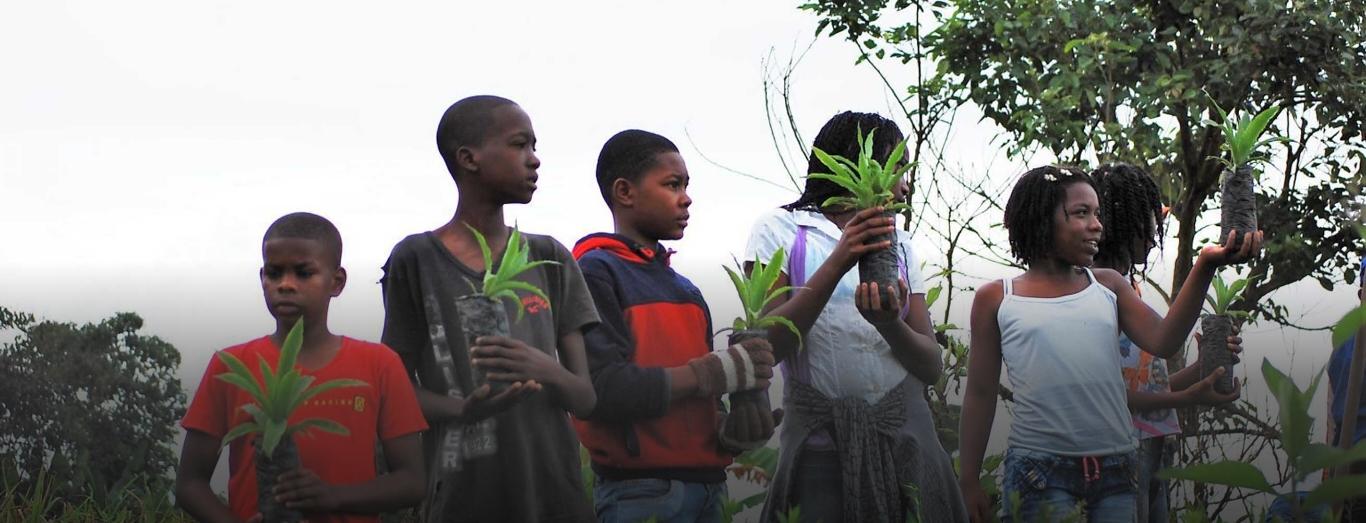
Achievements
Transforming The Environment Program (2022-2023)
The program conducted the planting of 14,810 trees, encompassing fruit trees, timber trees, and ornamental trees across 85 communities in 8 departments of Colombia.
The program involved 2,186 individuals, with a high participation rate of women, who took on the responsibility of caring for the newly planted trees.
The program brought together children, youth, adults, and the elderly, leveraging their efforts, knowledge, leadership, and motivation to create energy, collaboration, communication, and unity.
The program established three nurseries within the communities of Córdoba and Sucre, which supplied 2,593 of the 6,055 trees planted in Colombia.
The program partnered with 58 organizations to extend the impact and reach of the tree-planting initiatives.
The program developed a platform to accurately record and monitor the planted trees, ensuring their sustainable growth and maintenance.
Environmental Health Program (2022-2023)
- 01
On December 21, 2023, the tree planting project was launched in Kabwe with extensive participation from community institutions and support pledges from the Forestry Department.
- 02
At the launch event, a total of 730 tree seedlings were distributed and planted, contributing to the establishment of community orchards in various locations, including Katuyola and Kasangezhi communities.
- 03
The program began with 94 participants in Kabwe and Mwinilunga, planting a total of 1,226 trees, including 926 fruit trees and 300 indigenous non-fruit trees.
- 04
Through workshops and seminars, the program enhanced tree planting and management, focusing on topics such as environmental health, tree species, and ecosystems.
- 05
Educational gatherings were conducted in three clusters of the Mwinilunga district, each attended by 30 community members, to discuss the importance of a healthy environment and the role of trees.
- 06
In Kabwe, vision-sharing meetings and seminars concentrated on environmental health and the impacts of climate change.
- 07
Nurseries for lemons, guavas, oranges, and papayas were established in Mwinilunga, alongside land preparation for community orchards.
- 08
Training sessions for tree nursery management and establishment were organized in Kabwe, highlighting a variety of tree species including mandarins, avocados, and others.
- 09
Six lead promoters were identified and trained to closely collaborate with community members and document project impacts.
- 10
Discussions on climate and environmental changes involved farmers, promoters, and community leaders.
- 11
The program leveraged collaborations with local government departments, institutions, and traditional leaders to enhance community involvement.
- 12
Connections with local schools and commercial farms were established to promote educational activities and practical learning about tree planting and nursery management.
Practical experiences included:
Recognizing and extracting seeds
Preparing the right mix for the seedbeds
Planting of the seeds
Transplanting the saplings
Assembling the nursery, finding and introducing many practical tips on all the different tasks related to the maintenance of a nursery
Producing four different types of organic fertilizers was carried out. Workshop 1 allowed the nurseries to leave in operation
Focusing on soil preparation for planting, planting, species association, protection, and care for the trees.
So far, all those involved are participating with great interest, joy, and commitment. This spirit makes the project foresee the progress and fulfillment of the goals and new levels of well-being in the communities.


Transforming the Environment Program (2020-2021)
Some Achievements of Activities were:
Harvesting Nature’s Best: Cultivating, Connecting, and Sharing Organic Bounty
Identifying and diversifying two hectares of land with plantain mounds banana mounds, lemon trees, orange trees, tangerine trees, casava, and pumpkin plants.
Building two compost bins and producing 92 bags of bokashi as organic fertilizer to improve the soil of the two hectares of land.
Establishing Diversified High-Efficiency plots, maintaining and fertilizing them optimally.
Constructing structures for fertilizer production.
Identifying a selection of species to plant in plots.
Identifying 70 families interested in organic products.
Creating a marketing network for natural products and fruits that can benefit 70 regular monthly users.
Driving Sustainable Growth: Impact on Agriculture and Community
Well management and supervision of the project. Planting and harvesting products that were very popular among consumers and marketed well throughout the year.
Identifying the products with regular consumption in homes.
Evaluating the marketing methods.
Systematizing and dissemination of knowledge, learnings, and actions.
Holding four workshops and preparing five bulletins for the general public to raise awareness. The workshops and bulletins positively influenced food security and the dignity of farmers. Moreover, workshops' learnings strengthened the local economy through productive initiatives by families.
Green Your Inbox!
With our Newsletters, Stay updated on our Stories of Change and Growth.
As a gift, get a personalised Nature E-card from PH.

